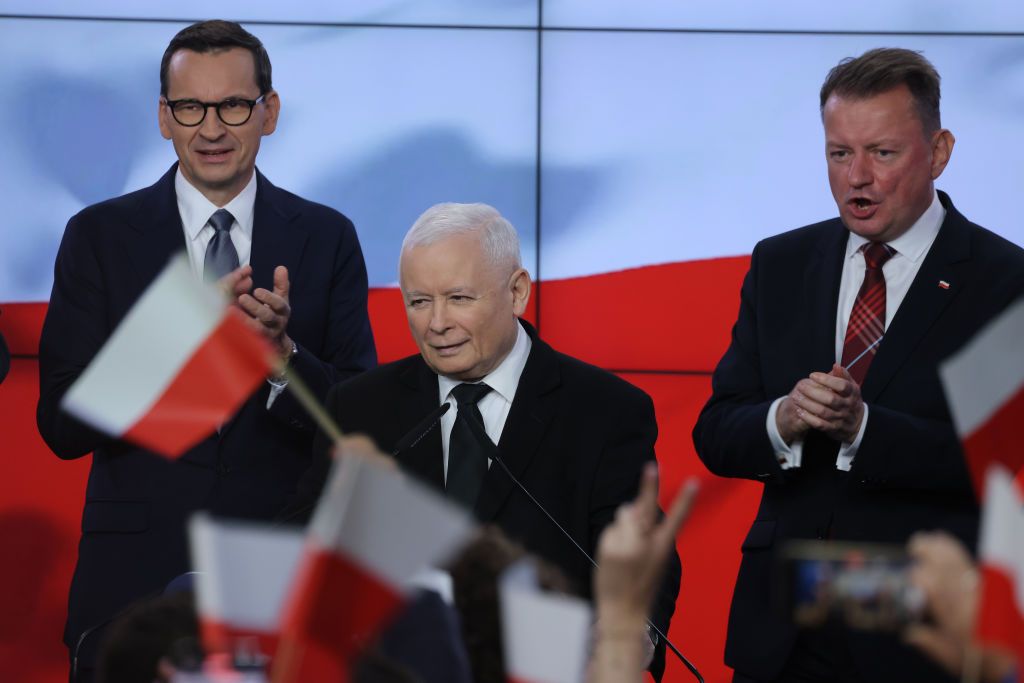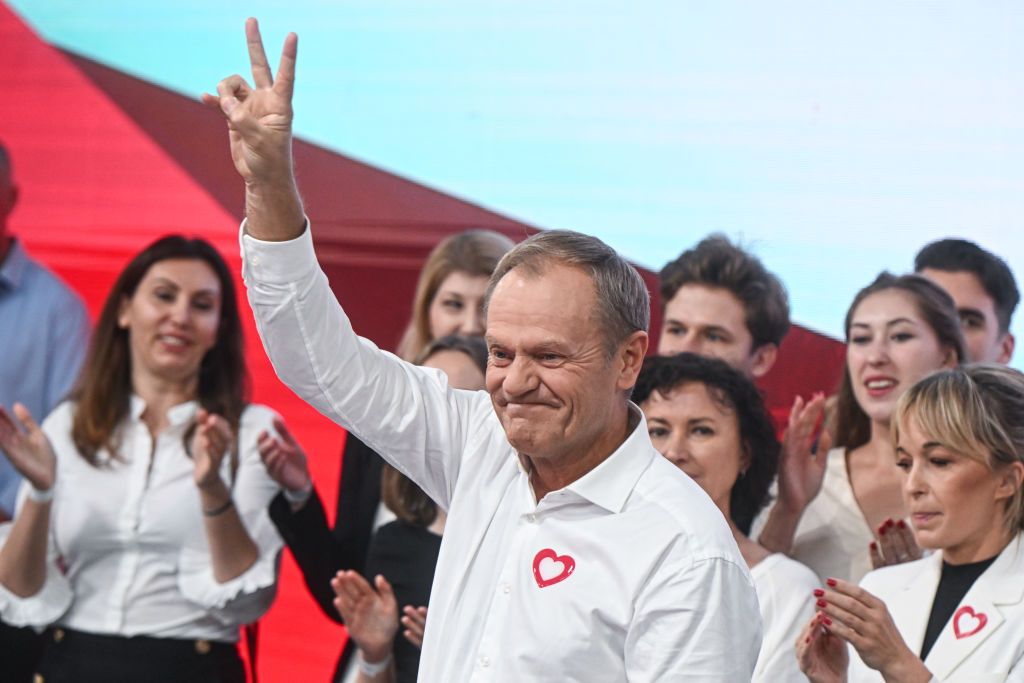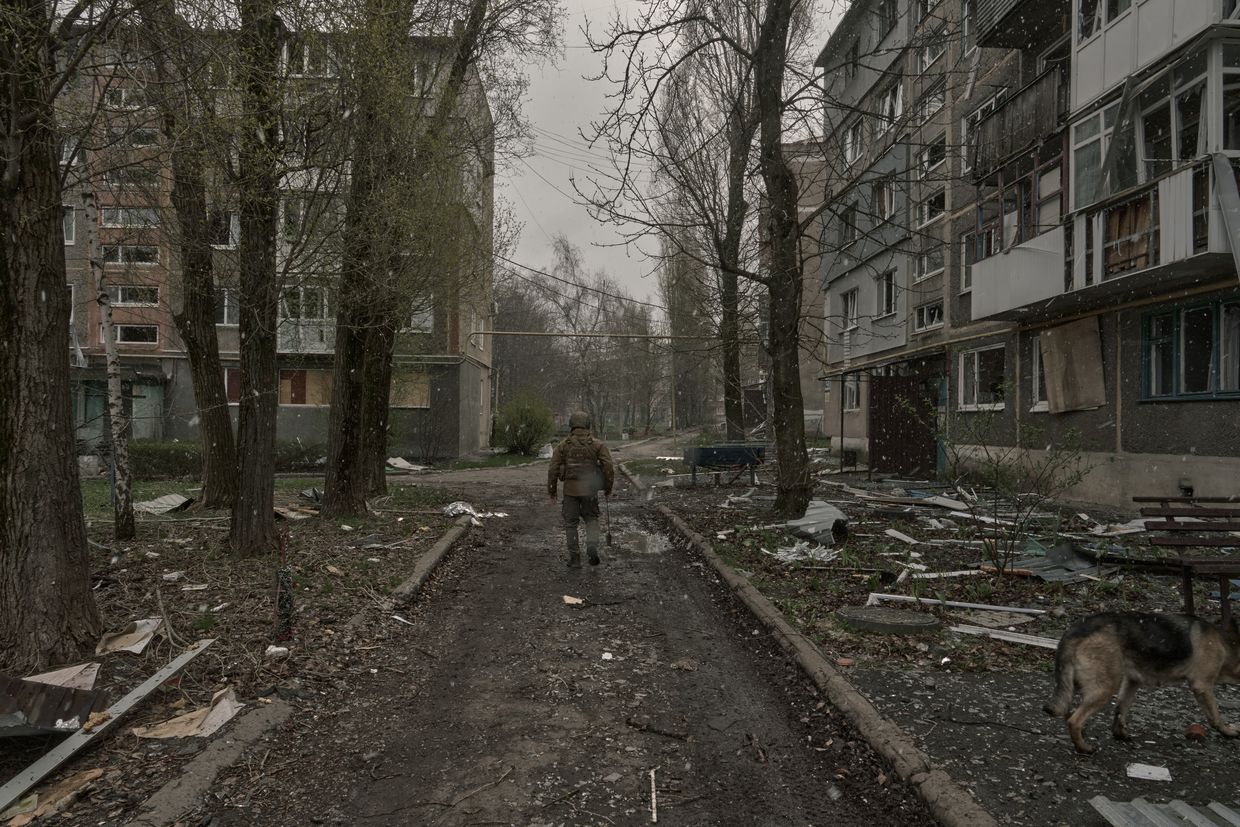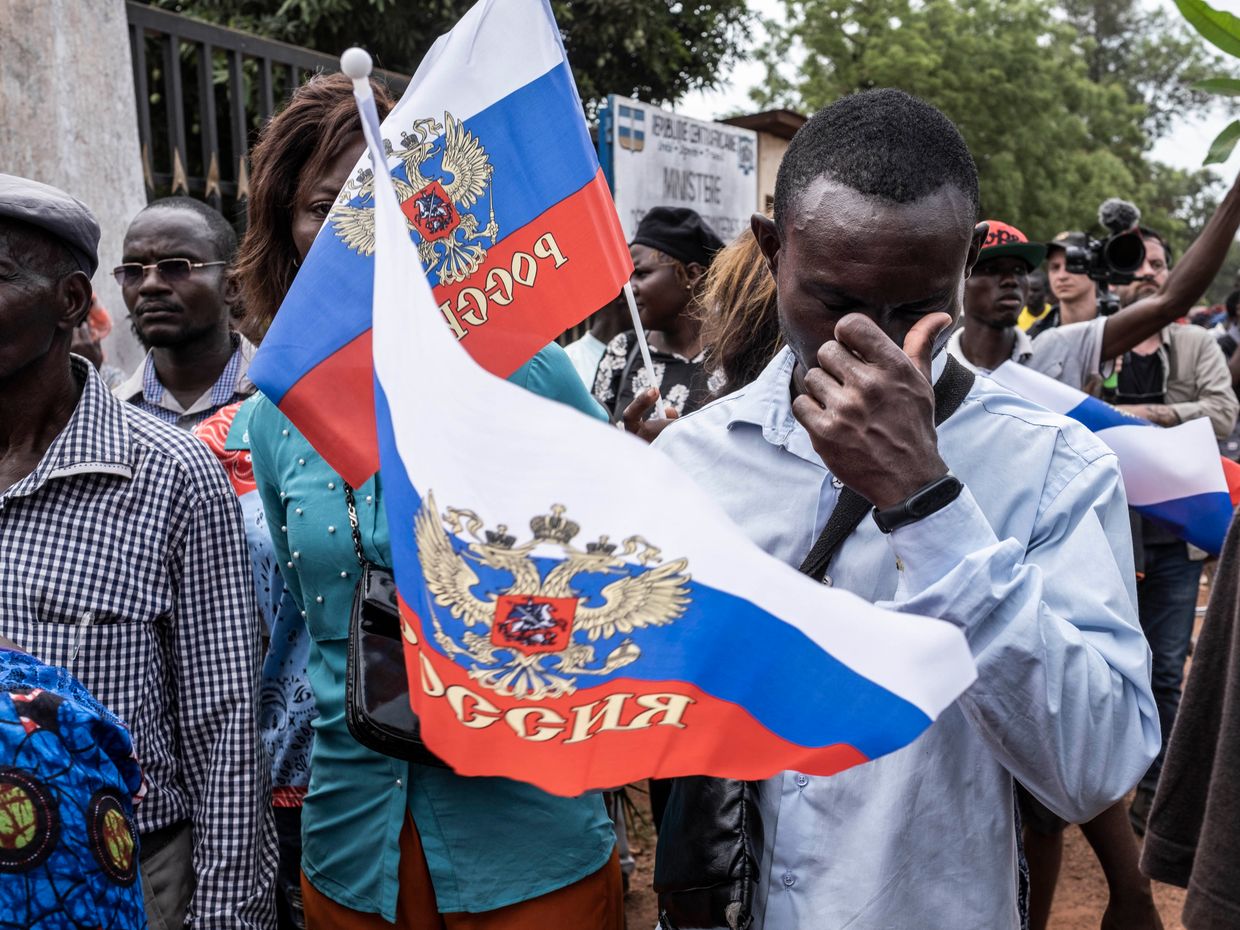WARSAW – This week, Donald Tusk won a vote of confidence in Poland’s parliament to lead a new government as the country’s new prime minister, following a failed bid by the incumbent, Mateusz Morawiecki to remain in that role.
The vote provoked a visibly nervous reaction from the leader of the outgoing populist government, Jarosław Kaczyński, who stormed up to the rostrum to denounce Tusk, a former prime minister who subsequently served as president of the European Council, as a “German agent.” Kaczyński’s behavior since the October election has been all too revealing: The all-powerful national populist leader of the past eight years has lost control – of himself as well as of the country.
Kaczyński can thank his own hateful policies for his electoral defeat on Oct. 15 (following a record voter turnout of 75%). Though his Law and Justice (PiS) party won more seats than any other single party, Tusk has built a broad four-party coalition with a solid parliamentary majority. He is now taking great pains to show his appreciation for his partners, including by creating 26 ministerial positions in the new government.
Tusk’s administration will need to show consistency and unity to deal with Poland’s many crises. After years of PiS illegally packing major judicial institutions with political cronies, a top domestic priority is to restore the rule of law. Tusk also promises a “return to Europe,” prompting celebrations across the European media, especially in Germany, a key neighbor with which Kaczyński had been picking absurd fights.

Paradoxically, the PiS government was generally an easy partner for Germany, since it isolated Poland within the European Union. While Tusk’s victory was greeted with joy in Berlin, German leaders surely know they will be dealing with a serious, seasoned player who will defend Poland’s interests more effectively than PiS ever did.
In his exposé (a speech outlining the new government’s plans), Tusk looked directly at PiS’s parliamentary deputies and made clear that no one in the EU will be able to push him around. In doing so, he took the air out of PiS’s aggressive propagandizing about him being subordinate to Berlin, and he sent a clear signal to both the German and French governments. He has already announced that he will oppose proposed EU treaty changes designed to remove the unanimity requirement, warning against “naive, sometimes even unbearable Euro-enthusiasm” behind efforts to “change the character of the EU.”
In terms of foreign policy, Tusk says he will focus primarily on maximizing support for Ukraine from Poland and other EU and NATO states. He did not mince words: “I cannot listen to politicians who talk about being tired of the situation in Ukraine. They are tired, they say it to the face of President Volodymyr Zelensky. Poland’s task is to loudly and firmly demand that the West fully resolve and help Ukraine in this war.” There was a clear message here for Hungary’s pro-Kremlin prime minister, Viktor Orbán, whom Tusk knows well and once considered a friend.
Still, Tusk also declared that his government will show “cordial and benevolent assertiveness when it comes to Polish interests” on the Polish-Ukrainian border, where Polish truckers have set up blockades to prevent their lower-paid Ukrainian counterparts from entering. Tusk says he will offer an immediate solution to this problem, which is destroying the Ukrainian economy.
On the fraught issue of immigration, Tusk showed during his stint as president of the European Council that he has a strong, principled position on the matter. His policy can be summed up as “Borders First!” All borders must be secured before a properly functioning migration and asylum system can be established, though the authorities can “protect the Polish border and be humane at the same time.” His government intends to seal the border, but also to end the illegal practice of “push-backs,” which has cost the lives of more than 50 people on the Polish-Belarusian border in recent years.

The importance of this issue is underscored by the fact that Tusk already has plans to fly to Tallinn and meet with the prime ministers of Estonia, Latvia, and Lithuania. They have many of the same priorities: dealing with Russia's war against Ukraine, securing their borders (all are targets of a Russian and Belarusian hybrid war that includes funneling immigrants over their borders), and strengthening their cooperation with like-minded governments.
In his exposé, Tusk made sure to mention Finland, signaling a stronger focus on NATO’s northern front. During Tusk’s first government, Radek Sikorski (who is returning as head of the Foreign Ministry to rebuild Poland’s ruined diplomacy) and Sweden’s then-prime minister, Carl Bildt, forged a special relationship. Now, Tusk wants to do the same within NATO. It is a sensible strategy, since he cannot hope for cooperation within the Visegrad group, owing to populist spoilers like Orbán and Slovakia’s new prime minister, Robert Fico.
Poland today is like a ship that needs to be rebuilt while at sea. The situation is not unlike 1989. The biggest difference is that the economy today is in crisis, rather than in ruins. Still, other challenges are just as difficult, if not more so. Back then, Russia (or, rather, the USSR) was on its knees, whereas now it is waging wars of aggression. There is no Polish politician today who could handle these challenges better than Tusk.
Editor’s Note: The opinions expressed in the op-ed section are those of the authors and do not purport to reflect the views of the Kyiv Independent.














